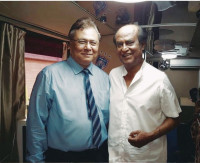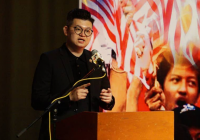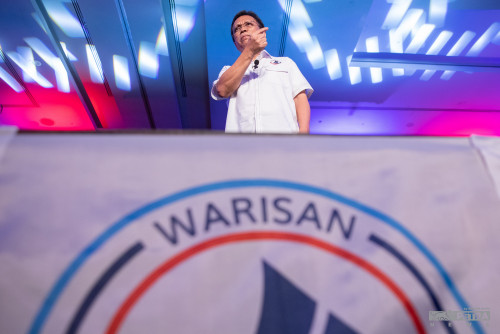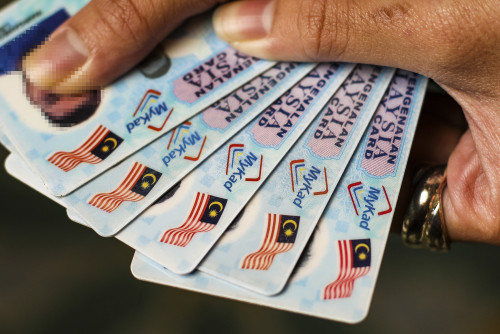MALAYSIA needs a holistic approach to tackle hate speech as new forms play out over social media platforms.
Among the newer forms of hate speech are those directed at foreign nationals such as refugees and migrant workers, the LGBT community, and against persons holding different political values, ideologies and affiliations.
They are well above those traditionally centred around race and religion.
Asia Centre’s recent 34-page report, Hate Speech in Southeast Asia: New Form, Old Rules, provides context to understand developments in Malaysia that would require policy makers to go beyond equating hate speech with only race and religion.
The report examines new forms of hate speech in Southeast Asia and outlines some key recommendations for governments and technology companies to holistically address them.
Hate speech has no universally accepted definition
The UN has noted that in all of its forms, hate speech characteristics comprise any kind of communication in speech, writing or behaviour, “that attacks or uses pejorative or discriminatory language with reference to a person or a group on the basis of who they are, in other words, based on their religion, ethnicity, nationality, race, colour, descent, gender or other identity factor”.
Malaysian authorities have traditionally paid close attention to hate speech that would ignite ethnic, racial and religious-based tensions. Similarly, other governments in the region have put into place different measures that would penalise such behaviour and also rolled out policies aimed at fostering national and community harmony.
In Malaysia, the colonial era laws such as the Sedition Act, as well as more recent legislation (e.g. Publishing and Printing Presses Act), Malaysian Communications and Multimedia Commissions (MCMC) Act) continue to be in effect and enforced as means to check and punish hate speech, including those published over social media networks not based in the country.
These laws allow the authorities to prosecute a wide range of speech deemed offensive, including fake news. An example of this would be the announcement on September 25 that MCMC and the police have opened 268 investigation papers into the spread of Covid-19 related fake news.
The pandemic has sparked a spike in hate speech against foreign nationals, including refugees and migrant workers. Migrant workers in Malaysia, Singapore, Thailand have been stigmatised for posing as “threats” to health and even national security.
In Malaysia, negative perceptions against Rohingya refugees rose as “news” of their rising numbers, undocumented entry into country and possible community health risks spread over social media.
The torrent of hate speech and deliberate misinformation goes beyond vulnerable communities, they are also directed towards those thought to be sympathetic to them.
Al-Jazeera’s ongoing legal troubles with the Malaysian authorities for producing and broadcasting a documentary on Malaysia’s treatment of migrants during the movement control order is only the most recent example.
In what appears more and more to be a repeating pattern as seen through the Al-Jazeera experience, and other recent incidents involving other journalists and activists, official reprimands and action often follow a widespread campaign of public dissatisfaction against these parties, which often include doxing, death threats, and defacement of their social media profiles online.
Here it is also important to note the language used by state officials, which sets a tone for how the media and wider population respond to others within the community.
Hate speech in society towards others often reflects the discriminatory and prejudicial language by government officials and political leaders. They are often responsible for laws that foster structural discrimination and result in rights infringement.
Additionally, there are growing incidents of hate speech aimed at sexual minorities when they are used as political targets, where the acceptance or rejection of these communities become part of political ideologies.
Statements by the official religious authorities against these communities become the basis from which more violent forms of hate speech is generated and directed towards visible members of these communities, and their perceived allies.
It is worth noting that there are no reported cases of individuals being charged for making or publishing hate speech against vulnerable migrant communities or sexual minorities, despite the violent and wide availability of those comments online.
Serious divisions over ideology and political values are exacerbated by hate speech which is weaponised to incite violence against activists and members of political parties.
This year this has been acute in Malaysia as the contending parties challenge each other to effect either regime change or continuity.
In order to address hate speech, Malaysia, Myanmar, Philippines and Singapore have either revised or drafted dedicated “harmony” bills aimed at securing social, racial or religious harmony.
Malaysia’s approach to address this issue via a harmony commission which to date has been stalled with no clear direction to guide the commission’s work due to the ongoing political uncertainty.
In the meantime, these dedicated harmony bills and commission together with existing laws and recent Covid-19 temporary laws form the legal regime across the region to counter hate speech. However, these laws still very much focus on race and religion.
Recent proposals to introduce some form of a Racial and Religious Hatred Act in Malaysia also betray this narrowness.
Malaysia, in considering policy instruments to tackle hate speech, should take a holistic approach that would also tackle the new forms of hate speech. Otherwise, any well-intentioned effort will be lopsided. – The Vibes, September 30, 2020
James Gomez is regional director of Asia Centre, a not-for-profit organisation working to create human rights impact in the region. Lutfi Hakim is an Asia Centre associate and a professional media consultant. This opinion piece is adapted from Asia Centre’s Hate Speech in Southeast Asia: New Forms, Old Rules report.





















